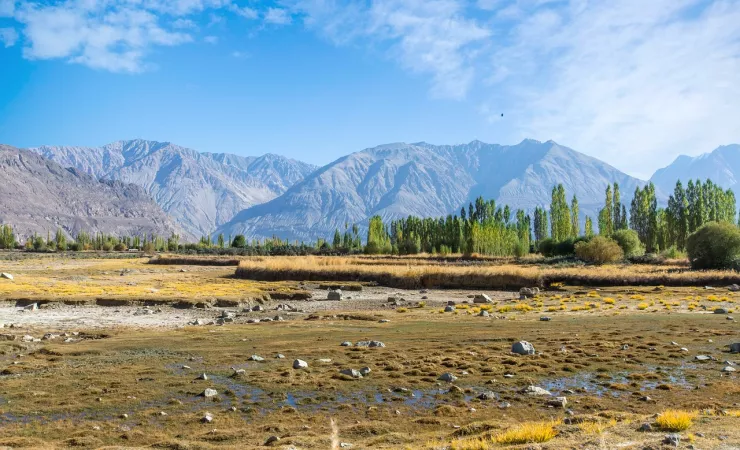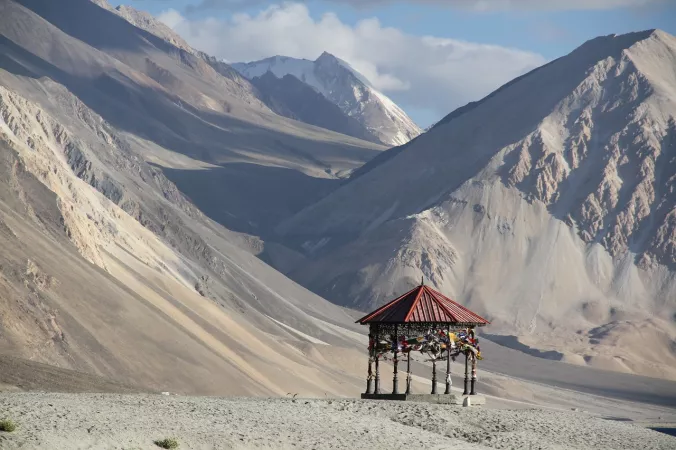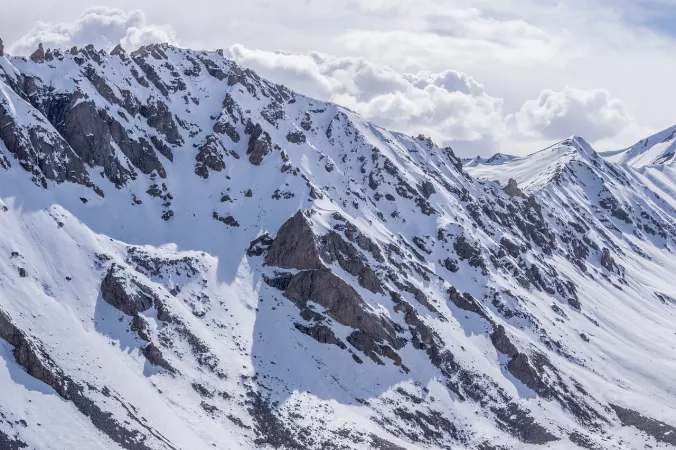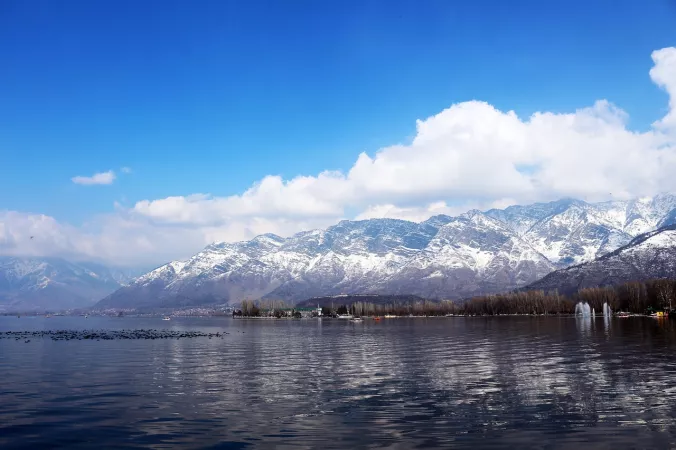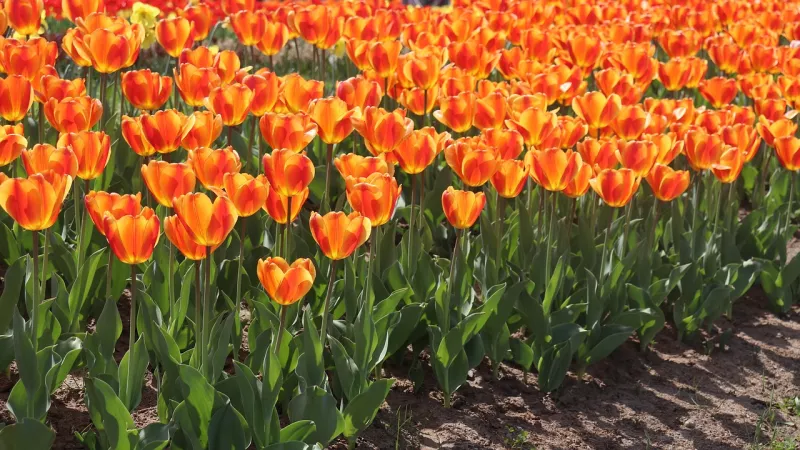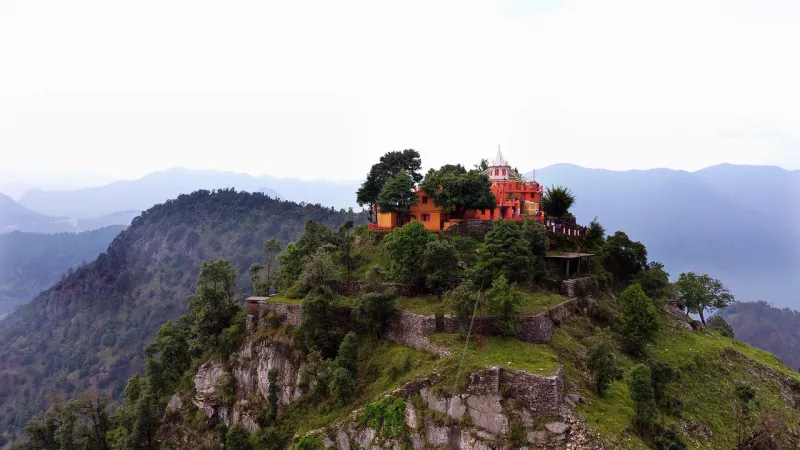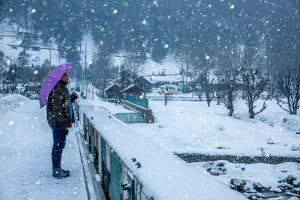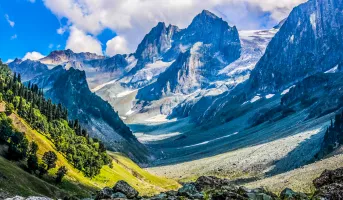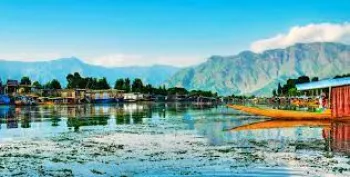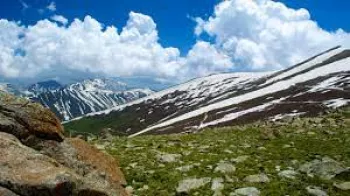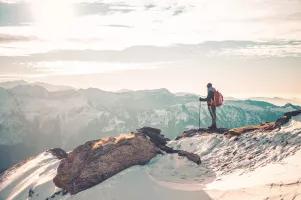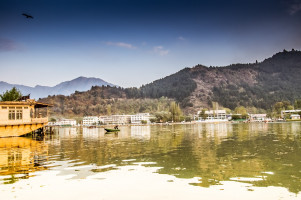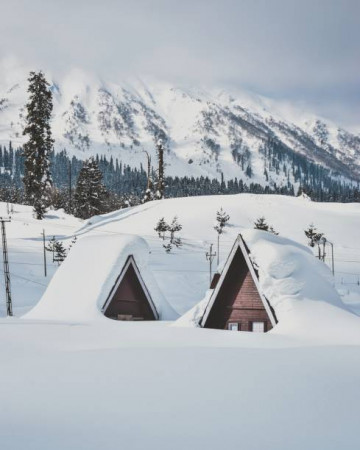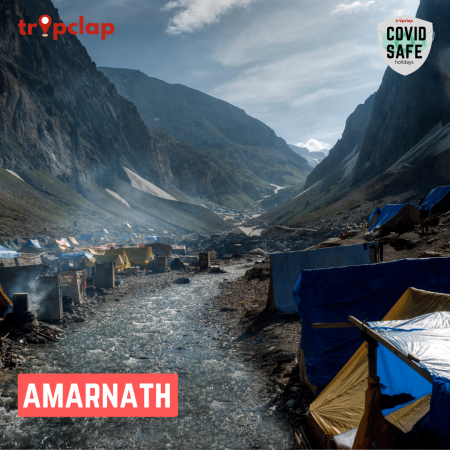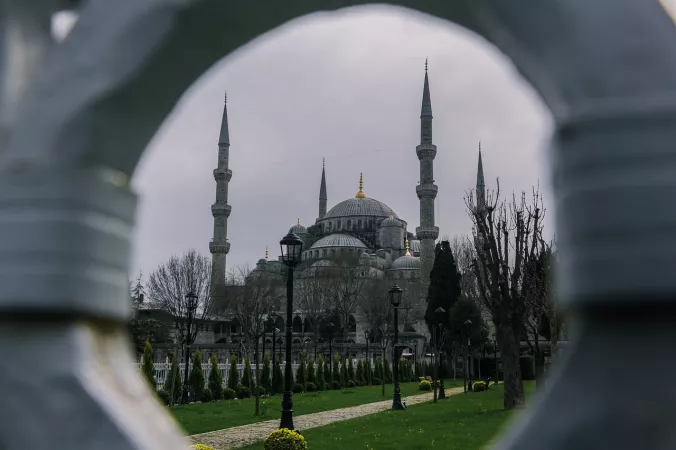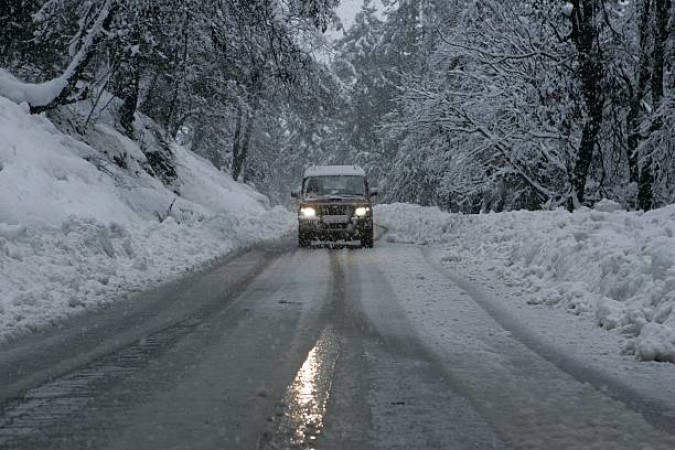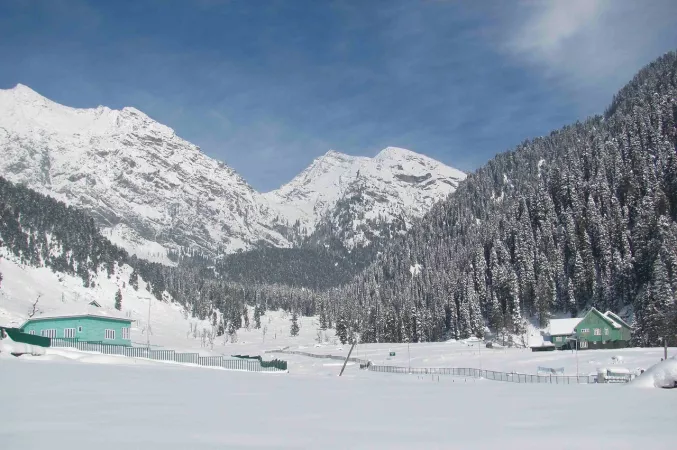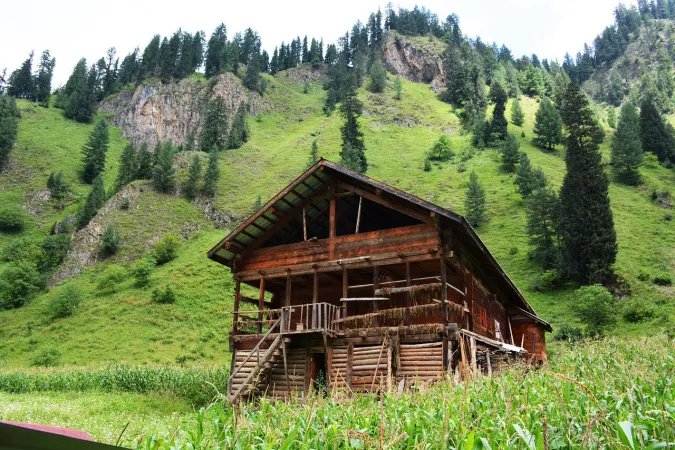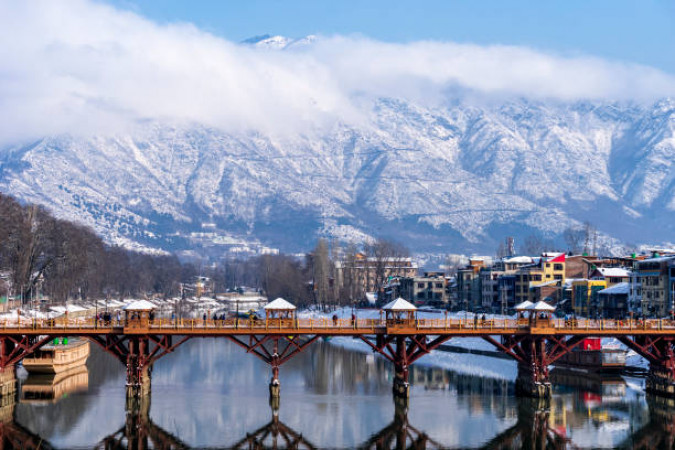
Srinagar
Package
5000 to 8000
5000 to 8000
Duration
3 to 7 Days
3 to 7 Days
Best time to visit
Apr-Jun, Sep-Oct
Apr-Jun, Sep-Oct
Theme
Hill Station, Adventure, Waterfront
Hill Station, Adventure, Waterfront
Srinagar Travel Guide
Srinagar, the summer capital of Jammu and Kashmir, is a picturesque city known for its stunning landscapes, serene lakes, and Mughal gardens. Nestled in the Himalayan mountains, Srinagar is rich in history and culture, with influences from the Mughal, Sikh, and British periods. The city is famous for its houseboats on Dal Lake, vibrant markets, and traditional Kashmiri handicrafts.Top Attractions in Srinagar
- Dal Lake
- Shalimar Bagh
- Nishat Bagh
- Jama Masjid
- Pari Mahal
Srinagar is Famous for
Dal Lake and houseboats are the unique selling points of Srinagar, attracting tourists from all over the world.Top Attractions in Srinagar
- Exploring Dal Lake on a Shikara
- Visiting the Mughal Gardens
- Shopping for Pashmina shawls and Kashmiri handicrafts
- Enjoying a traditional Kashmiri Wazwan meal
- Exploring the old city and its historical landmarks
What's Great about Travelling to Srinagar?
- Scenic beauty and tranquility
- Rich cultural heritage
- Adventure activities like trekking and skiing
What's Not So Great about Travelling to Srinagar?
- Weather can be unpredictable
- Political unrest in the region
- Limited connectivity to other parts of India
Travel Tips for Srinagar
- Carry sufficient warm clothing, especially in winters
- Respect the local culture and traditions
- Book houseboats in advance for a unique stay experience
Important Srinagar trip information
- Ideal Duration: 4-5 days
- Best Time to Visit: April to October
- Nearby Airports and Railway Stations: Srinagar Airport and Jammu Tawi Railway Station
Top 22 Places to visit in Srinagar
Per Person
11,999
*EXCLUDING APPLICABLE TAXES 5.0 Ratings
( 2 Reviews )
( 2 Reviews )
Per Person
17,500
*EXCLUDING APPLICABLE TAXES 4.9 Ratings
( 362 Reviews )
( 362 Reviews )
Per Person
12,000
*EXCLUDING APPLICABLE TAXES 3.9 Ratings
( 74 Reviews )
( 74 Reviews )
Total
47,600
*EXCLUDING APPLICABLE TAXES 5.0 Ratings
( 133 Reviews )
( 133 Reviews )
Per Person
9,086
*EXCLUDING APPLICABLE TAXES 3.9 Ratings
( 74 Reviews )
( 74 Reviews )
Per Person
24,000
*EXCLUDING APPLICABLE TAXES 4.4 Ratings
( 67 Reviews )
( 67 Reviews )
FAQ's on Srinagar
Q1: What is the best time to visit Srinagar?
The best time to visit Srinagar is during the summer months from April to June when the weather is pleasant and perfect for exploring the beautiful gardens, lakes, and mountains. Another popular time to visit is during the autumn months from September to November when the foliage changes color, creating picturesque landscapes. However, winter from December to February offers a unique experience with snow-covered landscapes and activities like skiing and snowboarding. Consider visiting during the Tulip Festival in April or the Shikara Festival in July for special events.
Q2: Do I need a visa to travel to Srinagar?
for traveling to Srinagar depend on your nationality. Most foreign visitors will need a valid visa to enter India, as Srinagar is part of the Indian territory of Jammu and Kashmir. Make sure to check with the nearest Indian embassy or consulate for the most up-to-date information on visa requirements, exceptions, and any special permits needed for visiting Jammu and Kashmir.
Q3: What are the must-visit attractions in Srinagar?
Srinagar is known for its stunning attractions, including the iconic Dal Lake, Mughal Gardens like Shalimar Bagh and Nishat Bagh, the historic Shankaracharya Temple, and the vibrant local markets of Lal Chowk and Polo View. Don't miss a shikara ride on Dal Lake, a visit to the floating vegetable market, and a stay in a houseboat for a unique experience. Other attractions include Pari Mahal, Hazratbal Shrine, and the beautiful Tulip Garden.
Q4: Is Srinagar a safe place to travel?
Srinagar is generally safe for tourists, but it's important to stay informed about the current situation and follow any travel advisories. Avoid areas where demonstrations or unrest are occurring, and respect local customs and traditions. It's advisable to travel with a reputable tour guide or company and to register with your embassy or consulate upon arrival. Take necessary precautions, such as avoiding large crowds and staying in well-known tourist areas.
Q5: What is the local currency in Srinagar and can I use credit cards?
The local currency in Srinagar is the Indian Rupee (INR). You can easily exchange foreign currency at banks, exchange offices, and hotels. Credit cards are widely accepted in hotels, restaurants, and larger stores, but it's advisable to carry some cash for smaller vendors and local markets. ATMs are available in major cities and tourist areas for convenient access to cash.
Q6: What is the local cuisine like in Srinagar?
Srinagar offers a rich culinary experience with dishes like Rogan Josh (a spicy lamb curry), Yakhni (yogurt-based curry), Dum Aloo (potato curry), and various kebabs and bread like Sheermal and Bakarkhani. Don't miss trying the traditional Wazwan feast, a multi-course meal featuring delicacies like Tabak Maaz (fried lamb ribs) and Gushtaba (minced mutton balls). Vegetarian options like Rajma Chawal (kidney beans with rice) are also available.
Q7: What transportation options are available in Srinagar?
Transportation options in Srinagar include public buses, auto-rickshaws, taxis, and cycle rickshaws for getting around the city. For longer distances or sightseeing tours, you can hire a private car or join organized tours. Shikaras (traditional wooden boats) are popular for navigating Dal Lake and other waterways. Additionally, renting a motorcycle or bicycle is a great way to explore the scenic landscapes of Srinagar and its surroundings.
Q8: Are there any cultural norms or etiquette I should be aware of when visiting Srinagar?
When visiting Srinagar, it's important to respect the local culture and traditions. Dress modestly, especially when visiting religious sites, and remove your shoes before entering temples or mosques. Seek permission before taking photos of locals, and avoid public displays of affection. It's customary to greet people with a "Salaam" and show respect to elders. When shopping, be prepared to bargain at local markets but do so respectfully. Overall, showing kindness and politeness will go a long way in interacting with the friendly locals.
Q9: I am a travel agent. How can I buy travel leads of Srinagar?
Register yourself as a travel agent at agents.tripclap.com and then you can buy travel leads to Srinagar once your account is approved. For more details contact our support team at +91-8069186564 or support@tripclap.com
